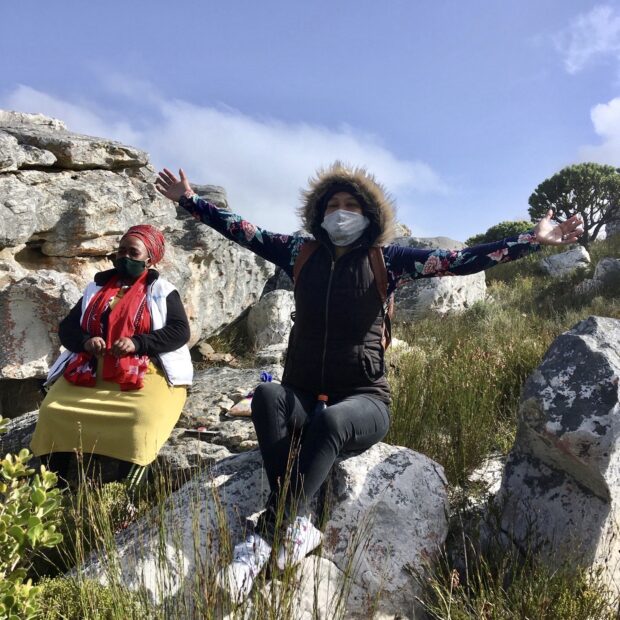An online Special Session delivered by Dr. Matthew Zylstra at the Fynbos Forum 2020
Summary outline:
- Connection: i) Lockdown Experiences/Insights; ii) Theory; iii) Practice
- Commitment: i) Health & Wellbeing; ii) Behaviours; iii) Responses
- Community: i) Roles; ii) Worldviews; iii) Research-Action Agenda
- Discussion
Note: There were some technical issues which prevented the speaker from being able to see or hear audience comments until the very end, when the ‘share slides’ feature was disabled.
This tumultuous year has illuminated many societal blind-spots and aspects of people’s lives that they may have previously taken for granted. In particular, the COVID-19 induced lockdown reminded many individuals how vital contact and connection with people and nature is for their health, wellbeing and resilience.
Now, as lockdown levels in South Africa ease – yet with the perpetual prospect that they may tighten again – we need to be more proactive in our understanding of how nature can play a key role in averting expected psycho-social impacts and mental anxiety as result of the COVID-19 stress, lockdowns and livelihood losses. Unchecked, this rebound could ripple across society with devastating effects.
This session invited participants to reflect on their experiences of nature during lockdown, and highlights other insightful stories which emerged locally – in terms of appreciation of fynbos and its species – as well as from around the world.
The session unpacked the concept of “human~nature connectedness” in both theory and practice, and summarise some of the stream of findings to emerge in recent times which reinforce why we all need nature, now more than ever. It also touched on curious and unexpected insights, particularly regarding neurophysiological impacts and how increased nature connectedness correlates to conservation commitments.
Yet, despite the recognised importance of nature connection for heath, wellbeing and pro-nature/pro-social behaviours being increasingly recognised around the world, there appears to be a significant (policy) gap in South Africa. Why? What is being done and what more can be done? How might experiences in fynbos help? We reflected on whether international examples and trends have applicability here.
Finally, we touched on the prospects for future research, implementation and advocacy – which ultimately link connection as foundational to durable pro-conservation behaviours, particularly when ‘held’ or reinforced through engaged community.








Be the first to share a comment